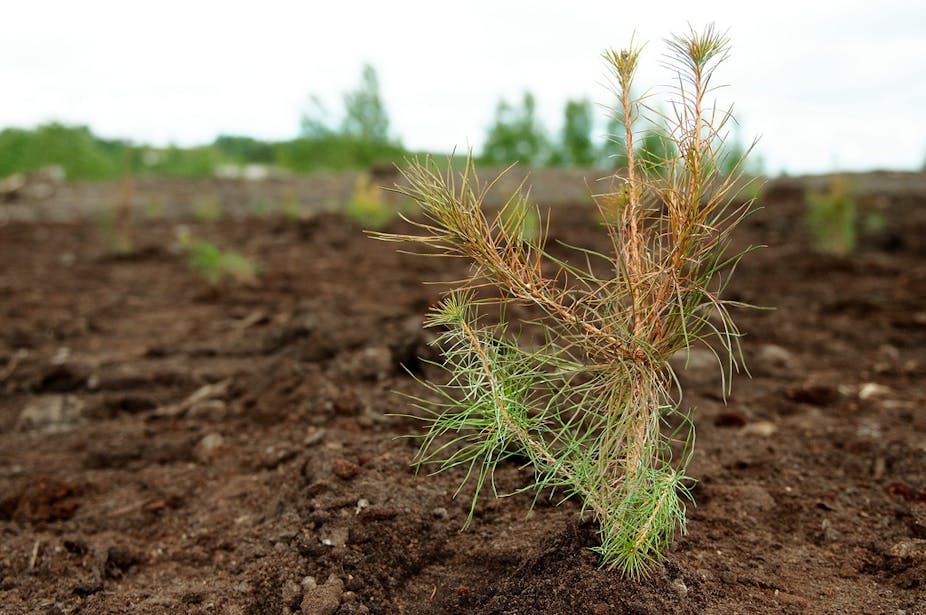Pornhub’s recent announcement that it would “Give America Wood” quickly went viral. The site’s pledge to plant a tree for every 100 “Big Dick” videos viewed was covered by everyone from AdWeek to Time, The Independent to Mashable.
Much more importantly however, Pornhub’s campaign spread across blogs and sites such as Reddit. A quick search brings up a further 100,000 different results. And then you have instant messaging, WhatsApp, SnapChat and so on. Clearly, the tree campaign has reached a lot of Pornhub’s core client base.
This is corporate social responsibility for a jaded digital age. It is also unashamedly a marketing campaign.
Pornhub is a big deal. The site is ranked 83rd most popular in the world, just behind HuffingtonPost.com (which of course also covered the tree campaign), and its business model is largely based upon onsite advertising. Many of the articles reporting the campaign have presented the concept as an “easy” way of giving or being charitable. After all, viewing a video costs nothing more than a few minutes of time. However Pornhub expects these new visitors will stick around, clicking through to its advertisers and, as a result, generate new income.
In any case a tree planting campaign is a very light form of corporate social responsibility. For an airline feeling guilty about its air pollution then tree planting makes sense. But for a porn site? This campaign ignores the claimed social and personal consequences of pornography, and the various support groups and organisations who would presumably welcome support from a corporate donor.
Of course, such recognition from Pornhub would mean a degree of corporate reflection and introspection, and these are qualities that are still relatively rare in any sector of the business world. Yet it is exactly this self-recognition that is pivotal to a robust corporate social responsibility programme. Organisations must look at the downside to their business – their social irresponsibility, as it were – and design a programme accordingly. Instead, Pornhub has favoured a campaign founded around the combination of a specific holiday – America’s Arbor Day – and a simple double entendre.
What this campaign reveals – with more than 1.5m videos viewed according to the site’s own “trees planted” counter – is how easy it is for an organisation to create an imitation of corporate social responsibility that appeals to its customers. What has been created is a cargo cult of giving. If it looks like corporate social responsibility then we – as consumers – are inclined to think of it in that way. The alternative is less media-friendly, as an apparent act of corporate social responsibility that has been achieved by merely copying the actions of other – possibly more mainstream – organisations.
For Pornhub, the tree planting commitment neatly flips into a significant marketing campaign for a specific niche of pornography: “Big Dick”. Pornhub lists fewer videos in this category than in many others, and a Google Trends comparison also suggests it is one of the less popular categories of pornography. And yet the “wood for wood” campaign has generated 300 unique views for each video in this one category over the past week.
All of this publicity may cost as little as $US15,000, depending on which tree-planting organisation is used. The world is a better place with 15,000 more trees, and Pornhub’s corporate social responsibility department is no doubt very pleased. But getting worldwide publicity for your website on a budget of just US$15,000? That is the sort of achievement any marketing department would be wildly celebrating.

